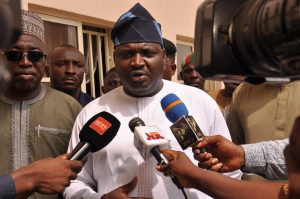Netanyahu to be invited to form government, paving way for return of Israel’s longest-serving leader | CNN

Tel Aviv and Jerusalem
CNN
—
Israel’s President Isaac Herzog announced Friday he will invite Benjamin Netanyahu to form Israel’s next government, paving the way for him to take the country’s top job for a record sixth time and extend his record as the nation’s longest-serving leader.
Herzog will officially issue the mandate to Netanyahu on Sunday, he said. Herzog made the announcement after meeting with all the factions in parliament, the Knesset, to ask who they would back for prime minister.
In a statement released by his office, he said: “At the end of the round of consultations, 64 members of the Knesset recommended to the president the chairman of the Likud faction, MK Benjamin Netanyahu.” He added that 28 Knesset members recommended outgoing Prime Minister Yair Lapid. The same number chose not to recommend anyone.
Herzog will meet with Netanyahu at the president’s residence on Sunday to formally give him the mandate. Under Israeli law, Netanyahu will then have 28 days to form a new government, with the possibility of a 14-day extension if required.
During negotiations, Netanyahu will have to divide up ministries among his coalition partners and haggle over policies.
This is where things get interesting. With a four-seat majority in the 120-seat Knesset, or parliament, the five factions allied with Netanyahu’s Likud are all potential kingmakers: fail to give any one of them what they want, and they could bring the coalition down.
When it comes to the ultra-Orthodox parties, their demands are uncontroversial as far as Netanyahu is concerned: bigger budgets for religious schools, and the right not to teach their children secular subjects such as math and English.
The real showdowns are likely to come with his new extreme right-wing allies. Netanyahu rode to power on the back of a stunning showing by the Religious Zionism/Jewish Power list, which, with 14 seats, is now the third-biggest grouping in the Knesset. Its leader, Itamar Ben Gvir, who has a conviction for inciting anti-Arab racism and supporting terrorism, has demanded to be made Public Security Minister, in charge of Israel’s police.
Ben Gvir’s partner is Bezalel Smotrich, who has described himself as a “proud homophobe.” He has said Israel should be run according to Jewish law. He has spoken of reducing the power of the Supreme Court, and striking out the crime of breach of trust – which just so happens to be part of the indictments against Netanyahu in his ongoing corruption trials. Netanyahu has long denied all of the charges. If Smotrich wins the Justice Ministry he covets, he may be able to make these things happen, ending Netanyahu’s legal worries.
Yet these may be the least of his concerns. Having been forced to join forces with the extreme right wing, the sixth reign of Netanyahu may end up further alienating the half of Israel that didn’t vote for the bloc of parties backing him.
Restrictions on settlements in the occupied West Bank could be loosened, prompting international condemnation. Violence between Israelis and Palestinians in the West Bank could worsen; 2022 has already seen more people killed on each side than any time since 2015.
Then there’s the potentially explosive issue of the Jerusalem holy site known to Jews as the Temple Mount and to Muslims as the Ḥaram al-Sharīf, or Noble sanctuary.
Under the status quo, only Muslims are allowed to pray at the compound. Ben Gvir advocates allowing Jews to pray at what is their holiest site.
Any change could be used as a pretext by Palestinian militants to carry out attacks. It would almost certainly be condemned by Israel’s new friends in the Arab world, such as Morocco, the UAE and Bahrain.
President Herzog himself summed up the issue when a hot mic caught him telling Netanyahu’s allies in the Shas party: “You’re going to have a problem with the Temple Mount. That’s a critical issue. You have a partner that the entire world is anxious about,” an apparent reference to Ben Gvir.
Herzog told another of Netanyahu’s allies, Avi Maoz of the avowedly anti-LGBT Noam faction: “There has been concern about things you have said about the LGBT community. All human beings were created in God’s image and we must respect everyone. We have only one State of Israel. That pertains also to your party.”
Could a Netanyahu-led government have disputes with the United States? Netanyahu may not have the same bromance with President Joe Biden as he did with Donald Trump, but the two men seem to get along.
“We are brothers,” Biden told Netanyahu in a call after the election. “My commitment to Israel is unquestionable. Congratulations, my friend.”
Netanyahu replied: “We will bring more historic peace agreements [with the Arab world], that is within reach. My commitment to our alliance and our relationship is stronger than ever.”
Netanyahu is vehemently against the US rejoining the Iran nuclear deal, but that seems off the table for now. On Russia’s invasion of Ukraine, and Israel’s reluctance to provide Kyiv with defensive weapons, Netanyahu promised President Volodymyr Zelensky to “seriously examine” the issue.
Assuming Netanyahu can reach a coalition agreement by the December 11 deadline, the Knesset Speaker will call a confidence vote within seven days. If all goes to plan, Bibi’s government will then take office, perhaps on December 18 – in time for Hanukkah, the Jewish festival of lights (and miracles).






